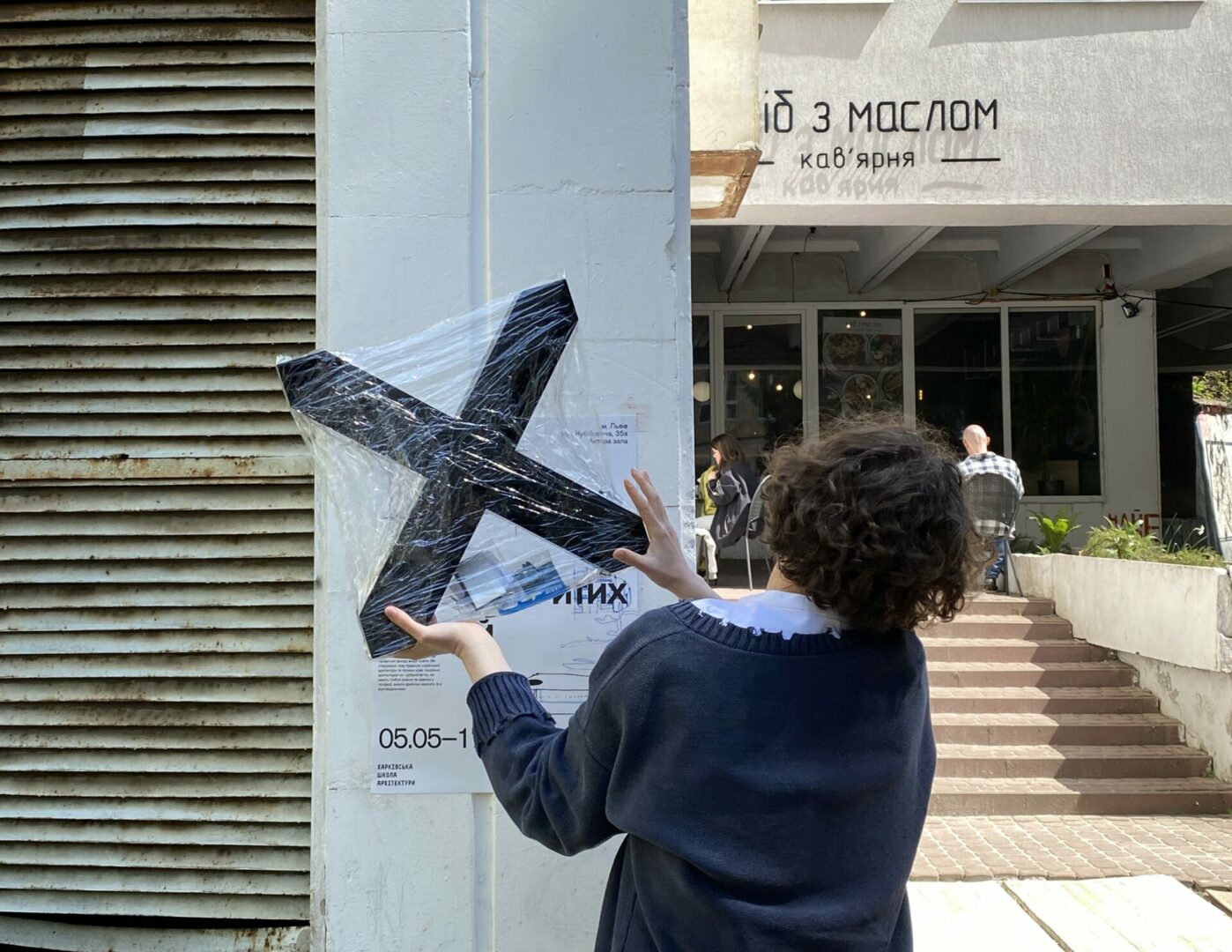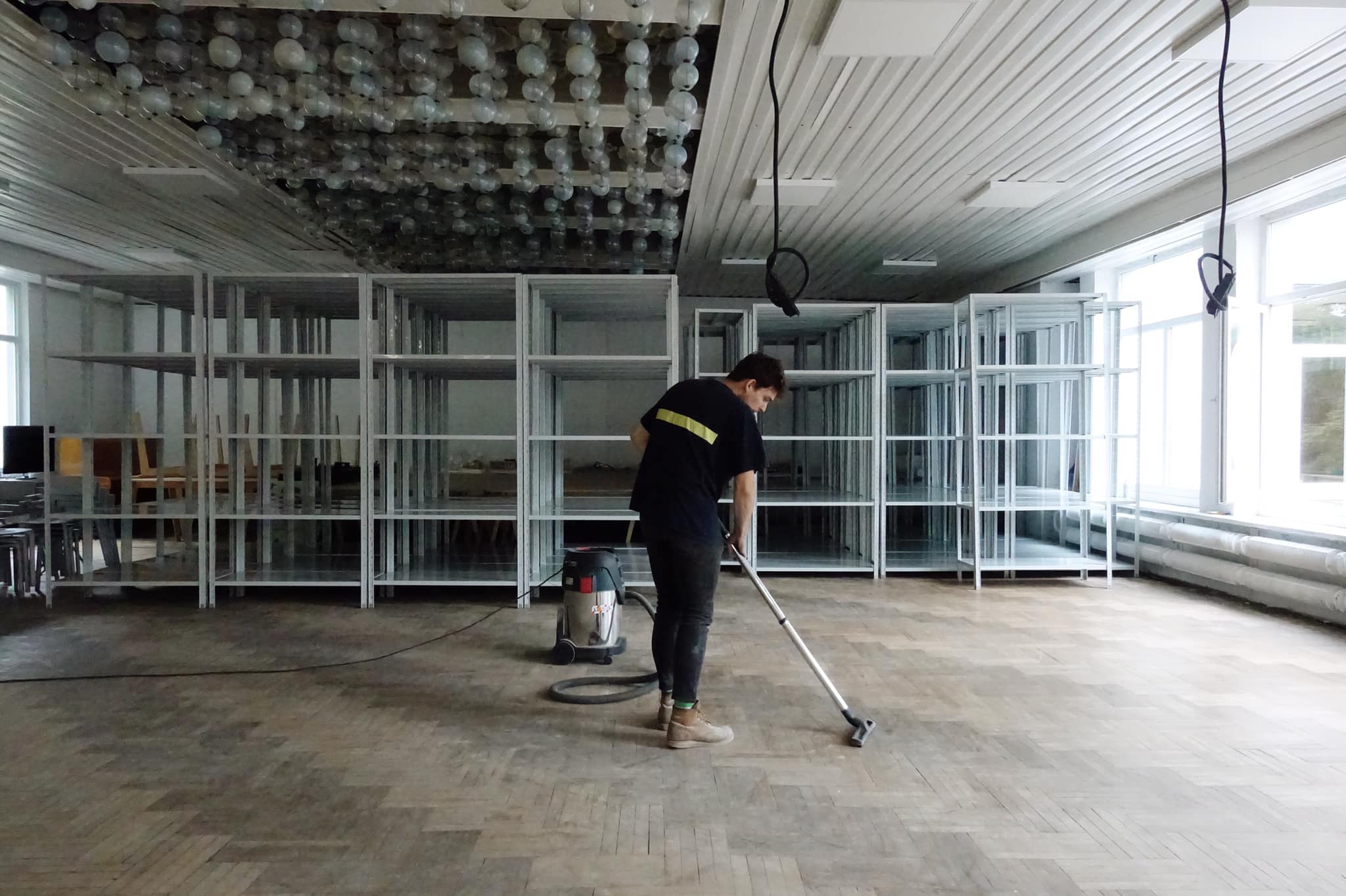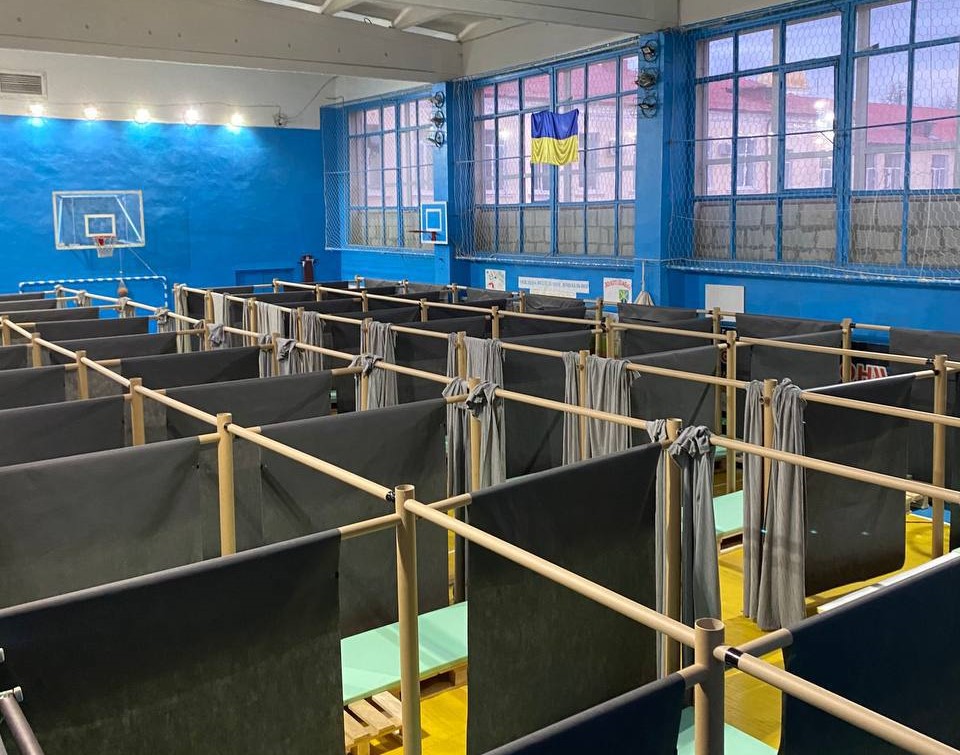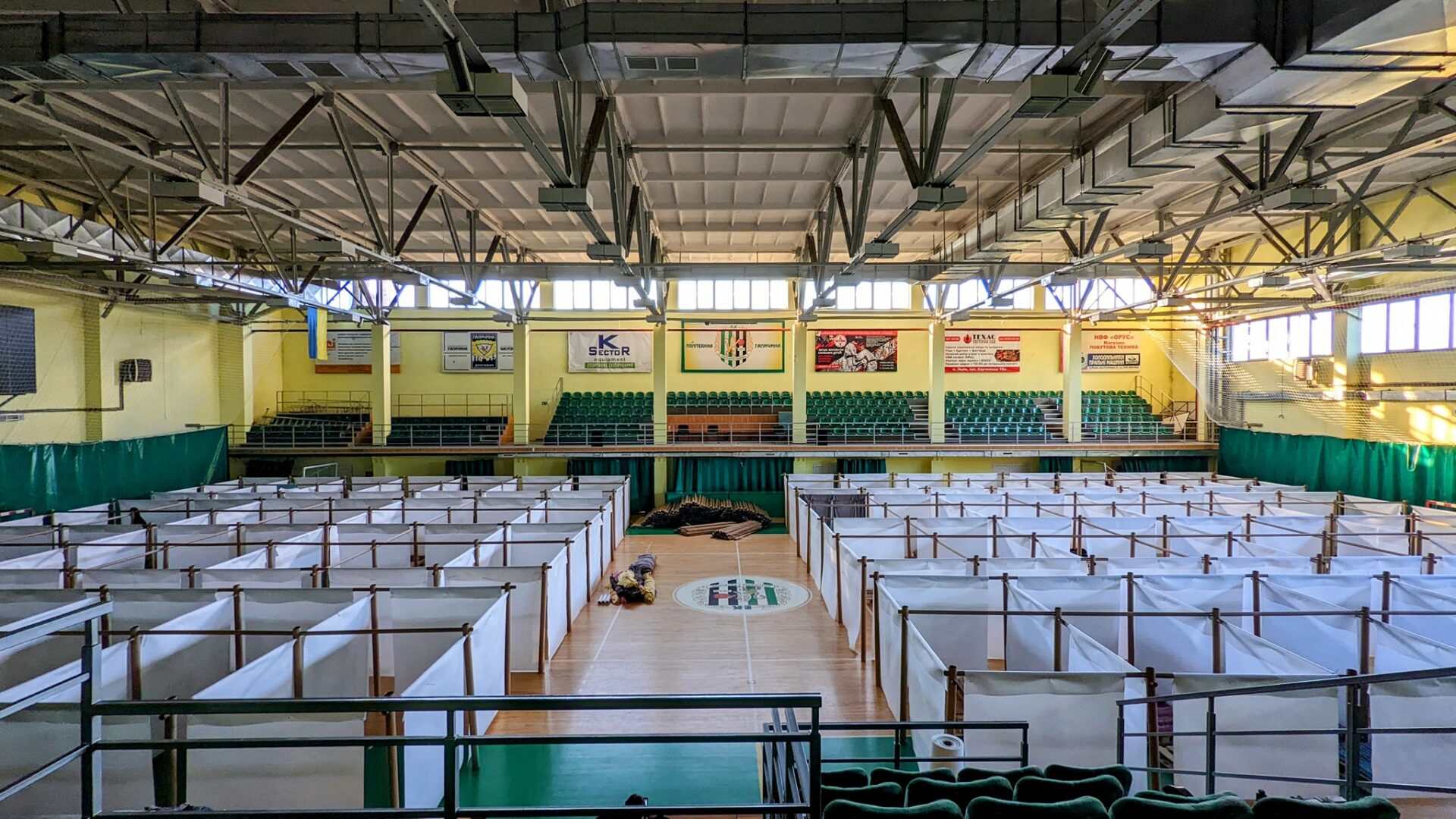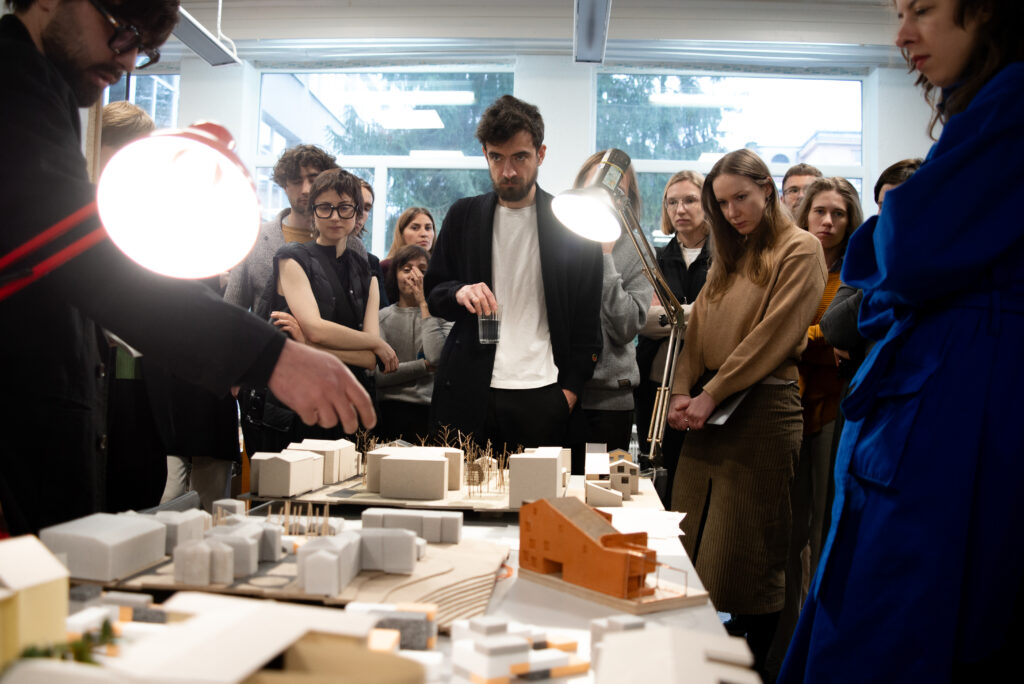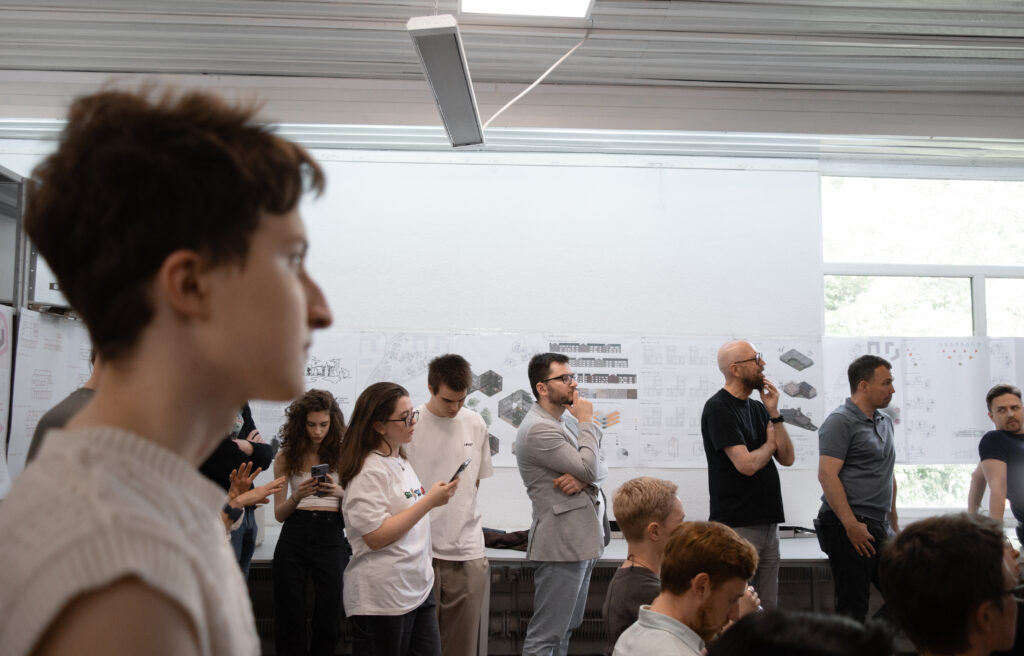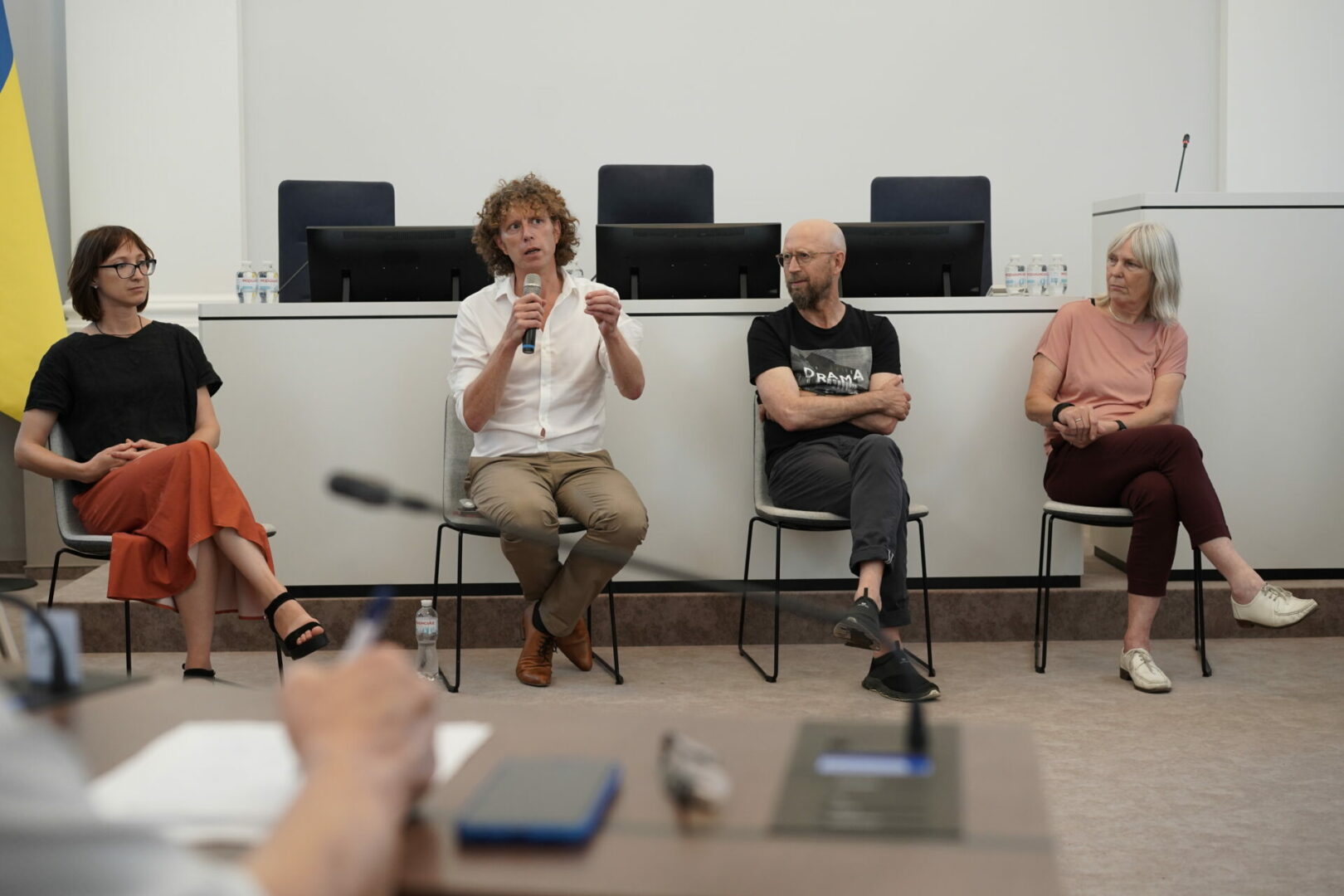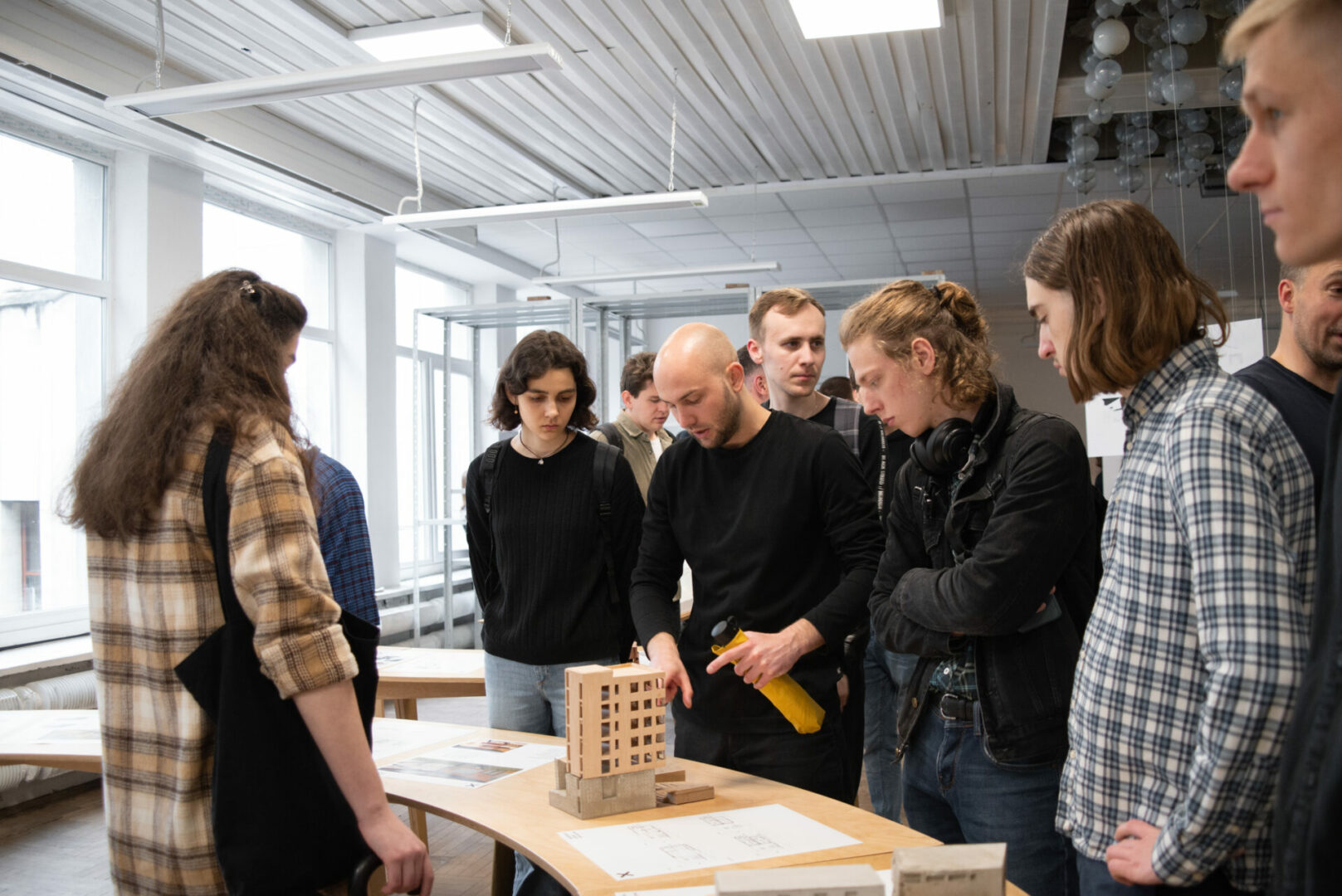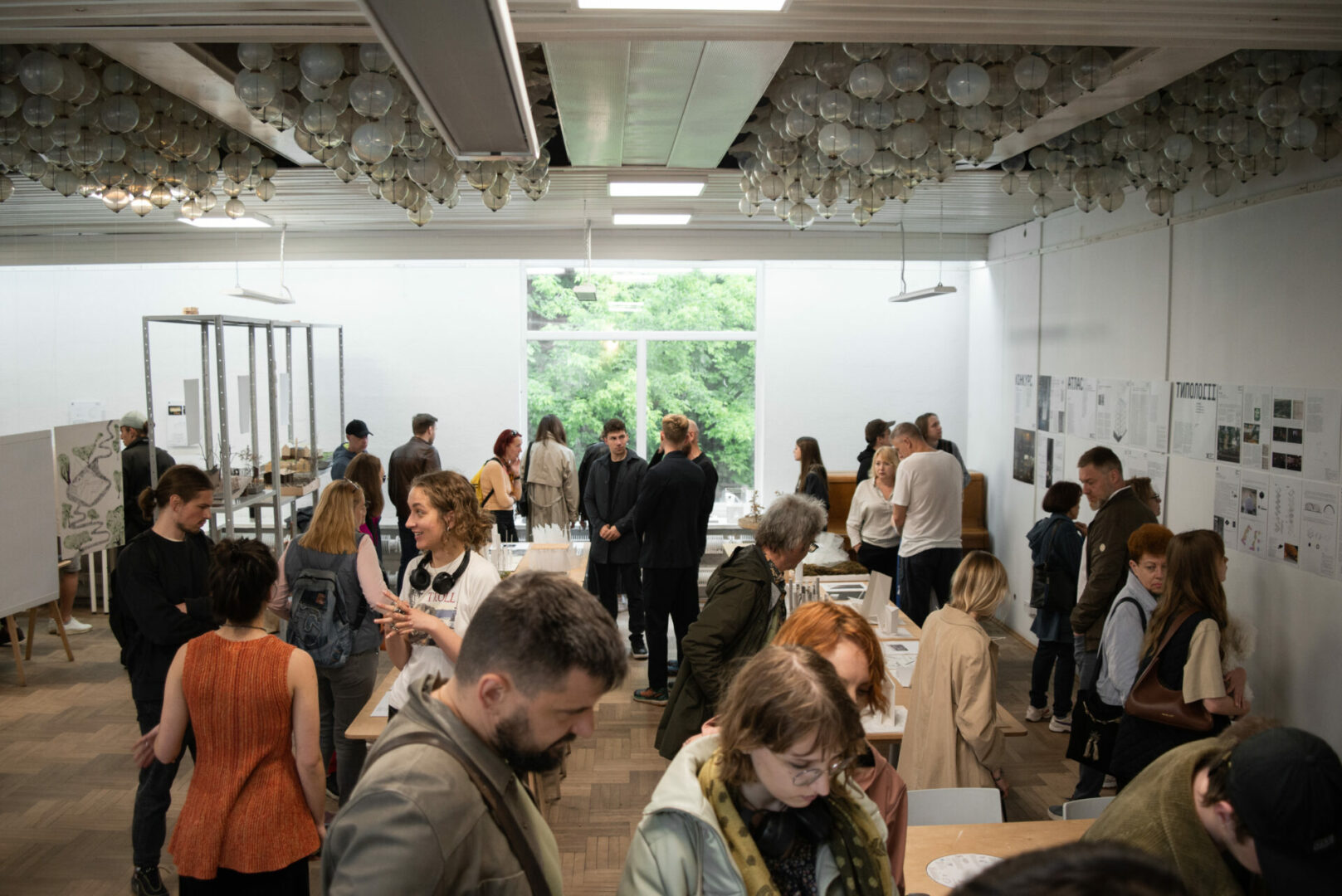Коли росія розпочала повномасштабну війну проти України, викладачі та студенти Харківської школи архітектури (ХША) були змушені покинути Харків. Вони опинились у різних регіонах України та Європи в пошуках безпеки, але вже на третій тиждень війни прийняли рішення гуртуватися, залишатися в Україні і продовжувати роботу. Львів став місцем тимчасового перебування школи. Війна стала межею, за якою почався новий етап розвитку.
ХША прагне зробити свій внесок у перемогу України через забезпечення якісної архітектурної освіти та участь в дискусіях про післявоєнну відбудову. Застосовуючи свої експертні знання та компетенції, ми впроваджуємо оновлені освітні програми, які відповідають викликам післявоєнного часу, проводимо власні дослідження про переосмислення українських міст та локальних спільнот для планування післявоєнного відновлення.
